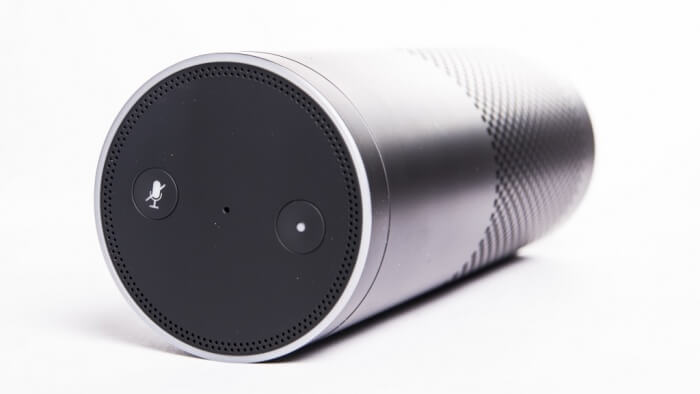Future Search: How Bots Are Shifting The Customer Journey
When it comes to search, the bots are taking over.

“Bots” may be something that is just dismissed by many as the latest buzzword of the moment, but their evolution was one of the most significant technological developments of 2016 and it is quickly becoming clear that bots are going to have a huge impact on search.
At the moment, the only way to search for anything on the internet is to Google it. Ok, so there are other search engines, but the rules are the same – you type something in, and if a brand doesn’t immediately pop up on the first page, they’re not doing their SEO correctly. People won’t visit their website, consumers won’t buy from them.
That model is set to change fundamentally in the next few years. Marketers have been busy working on “search” for the last 15 years, and companies around the world have invested millions in keyword buying in order to arrive on the first page of Google, but this is actually a sub-optimal system. Why? Let me explain.
The evolution of bots
When you search for something on Google, or even within a large e-commerce site such as Zalando or Amazon, what actually happens is that you get an overload of results.
For example, if you want to buy a jacket, you get 50 pages of jackets, which is so overwhelming that in reality none of us ever really go beyond the second page. But what if the jacket you really need is on the fifth page?
Search is not working as it should today. Bots, however, are going to fundamentally change the way we search – and in fact, they already are.
Facebook, as you might expect, was one of the first companies to start with bots. They’ve started to allow brands to use artificial intelligence engines to offer customer service through Facebook’s Messenger app. One of the first European brands to take advantage of this was Dutch airline KLM.
Through a plug-in on the KLM site, if you book a flight with them, the last thing that you’ll be asked is if you want to send your inflight documentation to Messenger. If you opt in to that, you’ll get flight notifications and information via Messenger.
The rise of the smart speaker
In recent months, both Amazon and Google have launched smart speakers with personal assistants that use a voice interface, rather than text. Google’s Home and Amazon’s Echo both allow you to ‘ask’ them things, from searching for a specific song to play to ordering a cab.
The majority of the users of such devices ask quite simple requests, but about one third of the estimated 1.7 million Amazon Echo owners are ordering products through it. This means you already have around 500,000 households buying products on a voice-controlled device that’s been created by Amazon. If this increases in popularity and effectiveness, it’s going to create a new world of search.
What I think is going to happen next, and very soon, is that these voice-controlled devices will be something we’ll have with us all the time, in the same way that we all carry around mobile phones. In fact, they’ll probably be on our phone as well, in the same way that Siri is on Apple phones. And this in turn will hugely affect search.
An evolving customer journey
One good demonstration of how this is going to affect search is if I’m looking for holiday insurance. I’ll ask my bot to search for suitable insurance, and it will start to search and talk to the bots of insurance companies.
The bot will go through the search pages for me, and will then tell me when it’s found the insurance that fits what I asked for. This means that companies will have to ensure that their bots find the bots of consumers.
It’s been interesting to watch the aggressive entrance of Google Home into the market, as you can definitely feel that they’re worried by what Amazon is doing.
Google want to hang onto their current dominance in the future of search, but they now have to chase Amazon in order to do this, and plough a lot of their investments in this direction. They have no other choice than to re-invent search at a high pace as the current model is under pressure.
Completely automated searches
What Google is aiming to do is make the search process automated and based on locations, and therefore hyper-relevant for users. We’re still a way off this, but you can definitely see the first signs of what it will look like in some brands.
A good example is on the outdoor clothing company Northface’s website. It’s now switched to a much more customer-orientated search model that asks questions and tailors the results accordingly.
You can type: “I need a rain jacket”. The question “What kind of activity do you want to do with it?” appears, followed by “What colour?” Once the bot has gone through the questions, you then see the jackets that fit your criteria.
Disney is also another company that’s going to be using bots in this way. I’ve seen a demonstration of what they’re planning, where you’ll be able to talk to a bot in the guise of Mickey Mouse (awesome!) to plan your holiday.
These first applications of bots are optimisations of the search process. Looking ahead to the second phase in a few years, the process will be completely automated and based on your personal profile. You’ll have a personal servant – a bot – to go through the search process for you.
So what does this seismic shift in search mean? Well, while it’s going to be fantastic for the customer, brands and companies are going to have to seriously rethink the way they want to be found. It’s going to be interesting to watch.
Prof. Steven Van Belleghem is author of the award-winning book When Digital Becomes Human, published by Kogan Page.
Thanks for signing up to Minutehack alerts.
Brilliant editorials heading your way soon.
Okay, Thanks!




